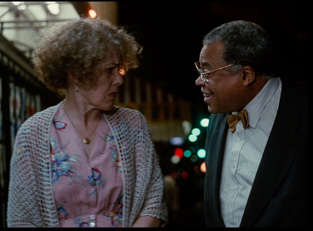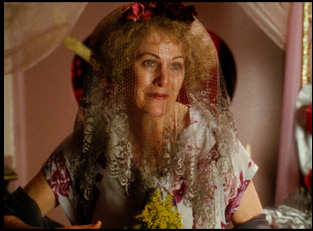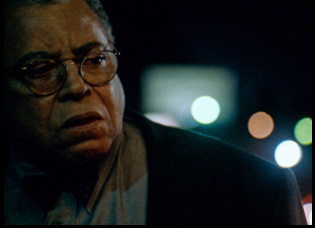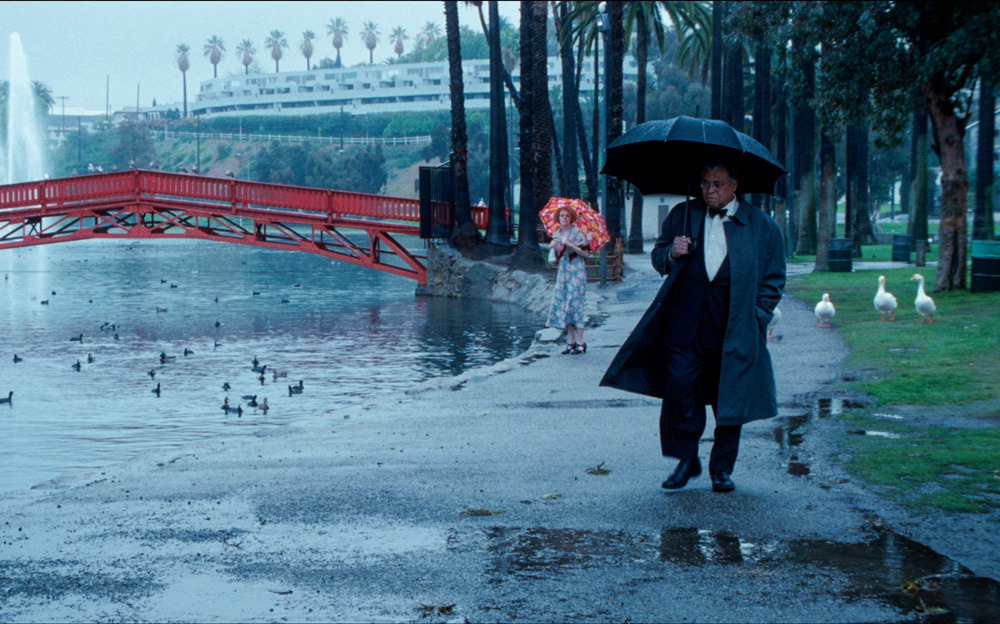When Charles Burnett was asked to give a reason for his initial attraction to Anthony C. Winkler’s script for “The Annihilation of Fish,” he was only partially led to reminisce, thinking more about the present than the past.
“What moved me about it was that you see homelessness, particularly now in Los Angeles, and people who are getting worse and worse [psychologically],” said Burnett. “I was once in New York, and this homeless person, stretched out on the subway seat, started talking and I didn’t realize that he was talking to me, but we were on the east side, and he was going to a hospital to try to get some medication. They stopped giving it to him, so he had to find a way to get treated. And he said [to me], ‘You know what I had to do? I started talking about how I was going to kill some white people, and they got me my medicine when I was coming out the door.’ What he said wasn’t very logical, but it worked. Reality [can be] really warped, but there is some advantage to thinking those terms because it gets things done in a certain way, and I looked at this guy, he gave this look like, “I gave you some good advice, now it’s yours to use.”
It’s how Burnett could make sense of the unlikely romance in “The Annihilation of Fish” between Poinsettia (Lynn Redgrave) and Fish (James Earl Jones), both of whom find a real partner in one another after long carrying around imaginary ones when they both find a safe haven at a house run by Mrs. Muldoon (Margot Kidder). Both are considered too mentally unstable to stay elsewhere, with Fish recently evicted from a group home for his sporadic fisticuffs with an invisible adversary named Hank and Poinsettia simply looking for a place to settle down anywhere as she believes herself to be the spouse of Giacomo Puccini. Neither can see reality as the other does, but they start to see something in each other when Fish begins to invite Poinsettia over to play cards and eat goat curry, courtesy of his upbringing in Jamaica, and she finally finds someone to calm her down when he clearly takes her seriously as no one else will.

In their introduction to the new restoration, Milestone Films’ Amy Heller and Dennis Doros acknowledged they needed some magic to keep hopes alive to ultimately get “The Annihilation of Fish” to audiences, first planning to distribute the film not long after their revival of “Killer of Sheep” was a success in 2002. Burnett was keen on seeing the film out in the world, but with the time that had passed after its production, some of the original producers of the film required convincing and no deal could be made before their company was dissolved in 2012, leaving the distribution rights in limbo. Doros recalled having to find out who actually owned the film, a search aided by the fact that the second in command at the U.S. Treasury at the time had a wife who was a film archivist, and then when the rights were put up at a bankruptcy court in California, the judge turned out to be a big fan of Charles Burnett, so “after 20 years, we finally get a break.”
Now it’s audiences’ turn to feel the same way when the eccentricities that were once singled out for criticism now distinguish the film and reveal it to be an essential part of Burnett’s larger filmography, which Mitchell was eager to seize on by asking the filmmaker about the recurring theme in his work of “how often characters that you have in your movies are dealing with having what should be a secure life taken away from them.”
“Because I had a speech impediment, I was never really engaged in something, so I had to stand back and listen and it gave me a different perspective,” recalled Burnett, in trying to explain how he came upon his distinctive vision. “Maybe because it took me a while to process things — I don’t know what it is, but looking at people in particular, I always admired people who could talk and be fluent, so I studied them a lot more and tried to get their psyche, whatever it is. People do things differently, so you try to put it in some sort of context and make sense out of it. And because I grew up in South Central, there’s a lot of odd things happening that I had to adjust to and makes sense out of it, so [that’s why] I see things the way I do.”

“Also, James Earl Jones liked to eat and I don’t mean this in a bad sense. He said that he was a member of this carnivorous club in Africa that you can eat any kind of meat you want,” said Burnett, who had to preside over a scene in which Fish makes some curried goat for Poinsettia. “And the funny thing was Lynn Redgrave didn’t like curry goat, but James Earl Jones did, so she was really a trooper — she said, ‘I won’t swallow it, but I’ll eat it.’ And we were doing the scene and this big plate of curry goat, and James Earl Jones was just eating away, and we would stop [the scene], so the [production assistant] would run up and try to get the plate so the food would look the same when we started shooting so there would be some continuity there. Lynn Redgrave would be very meticulous about the size of the plate and eat just enough to make it work, but James Earl Jones would just keep eating. We finally gave up on it and we had to fix the plates for it, but he just loved it. We had a lot of good time on the production and I’m glad he’s a method actor.”

“There’s several scenes where James is always fighting the demon — his demon, and if you’re not careful it can be kind of hokey, so you have to make little things where the audience feel, ‘Well, maybe there is something about this. Maybe it does exist,’ said Burnett, who would only add a few subtle touches to allow the audience to see what Fish did, relying almost entirely instead on Jones to outline his enemy. “There’s a scene where he’s wrestling this demon, and [another] where he throws him out the window, and there’s this little gesture where the leaves start to move. And [you start to think], ‘Well, it’s not only his illusion, but maybe we’re in it too, so you see that movement, and then we hope that the audience will feel that he isn’t totally out of his mind, but we’re in it with him. Things like that we had to deal with and try to make it work. Because that was going to sell the whole thing about his perception of reality because it isn’t far from being an illusion. It has some credibility to it.”
The same could be said of “The Annihilation of Fish,” which felt as if it were merely an illusion for so long and now after haunting its filmmakers for some time about what could’ve been, it’s bound to haunt audiences in an even more profound way.
“The Annihilation of Fish” opens on February 14th in New York at BAM Rose Cinemas, February 15th at Austin Film Society and February 16th in Salt Lake City at the Broadway Centre Cinemas before expanding across the country. A full list of theaters and dates is here.




